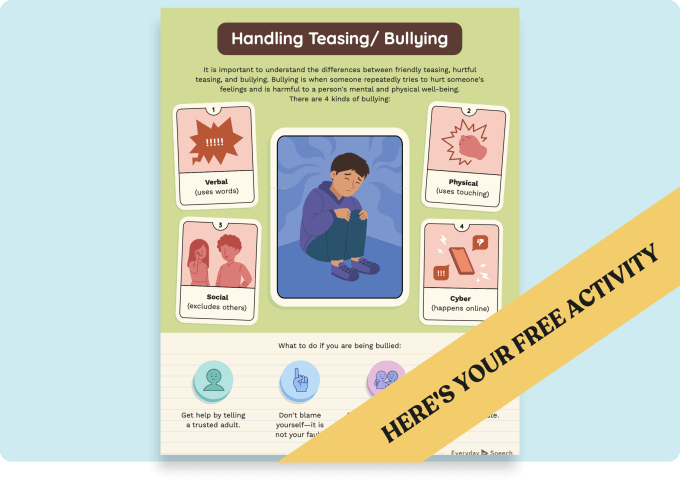Effective IEP Goals for Teaching Self-Introduction Skills
Get free social skills materials
No-prep lessons on self-regulation, emotional recognition, conversation skills, and more.
Sign up hereDownload 50+ Example IEP Goals
Customizable library of strengths-based goals
Introduction: In special education, teaching students essential life skills, such as introducing themselves, plays a significant role in their overall development. These skills not only enhance students’ learning experience but also promote healthy social interactions and emotional wellbeing.
Understanding Self-Introduction Skills
Self-introduction skills involve the ability to politely and confidently introduce oneself to others. This includes maintaining personal space, using appropriate body language, and effectively conveying one’s name. Mastering self-introduction skills can positively impact students’ learning, social interactions, and overall wellbeing.
The Role of Specialists
Various specialists play a crucial role in supporting the development of self-introduction skills:
- Speech-Language Pathologists: They can help students with speech and communication challenges to articulate their names and greetings effectively.
- Social Workers: They can offer guidance on maintaining personal space and appropriate body language during introductions.
- Psychologists: They can assist students in overcoming social anxiety or other emotional barriers that may hinder their ability to introduce themselves confidently.
- School Counselors: They can provide additional support and resources for students struggling with self-introduction skills.
IEP Goals for Self-Introduction Skills
Here are some specific SMART IEP goals to improve self-introduction skills in students:
- Goal: The student will confidently introduce themselves to new people at school.
- Strategy: Encourage role-playing activities where students practice introducing themselves in various scenarios.
- Activity: Create opportunities for students to interact with new peers and staff members during school events.
- Goal: The student will maintain appropriate personal space while introducing themselves.
- Strategy: Teach students about the concept of personal space and its importance in social interactions.
- Activity: Use visual aids or physical markers to demonstrate appropriate personal space during introductions.
- Goal: The student will use appropriate body language during self-introductions.
- Strategy: Discuss and demonstrate various forms of body language, such as eye contact and smiling, that convey a positive introduction.
- Activity: Have students practice using appropriate body language during role-playing exercises.
Implementing and Measuring Progress
Implement these goals by incorporating them into students’ daily routines and providing consistent reinforcement. Measure progress through regular assessments, such as teacher observations, student self-assessments, and peer evaluations. Adjust strategies and activities as needed to ensure continued growth in self-introduction skills.
Conclusion
Teaching students effective self-introduction skills is crucial for their social and emotional development. By implementing these IEP goals and collaborating with specialists, educators can foster a supportive learning environment for all students. We encourage you to apply these goals and invite your thoughts and experiences in the comments below. For more resources, explore the Everyday Speech Sample Materials.


